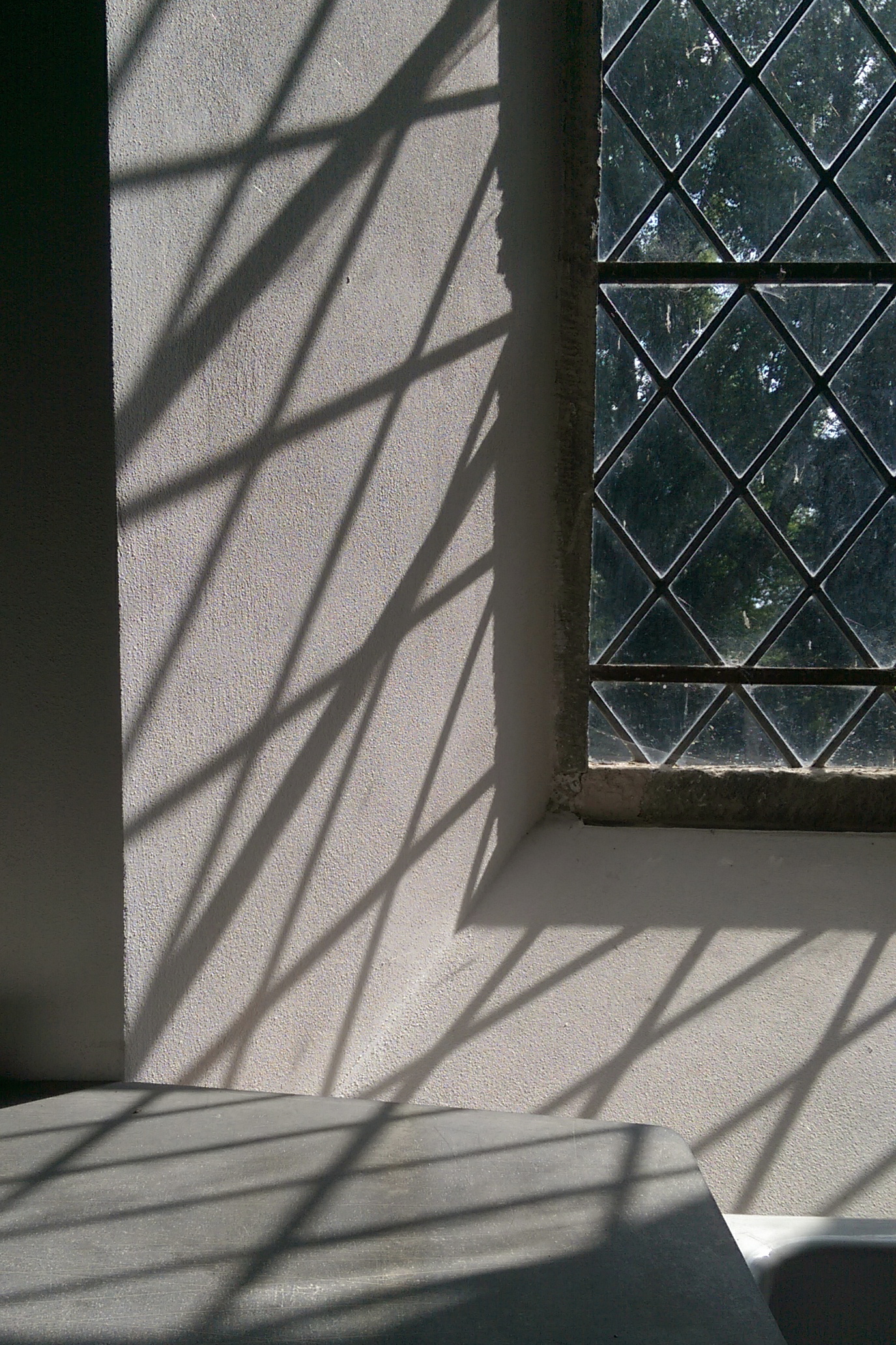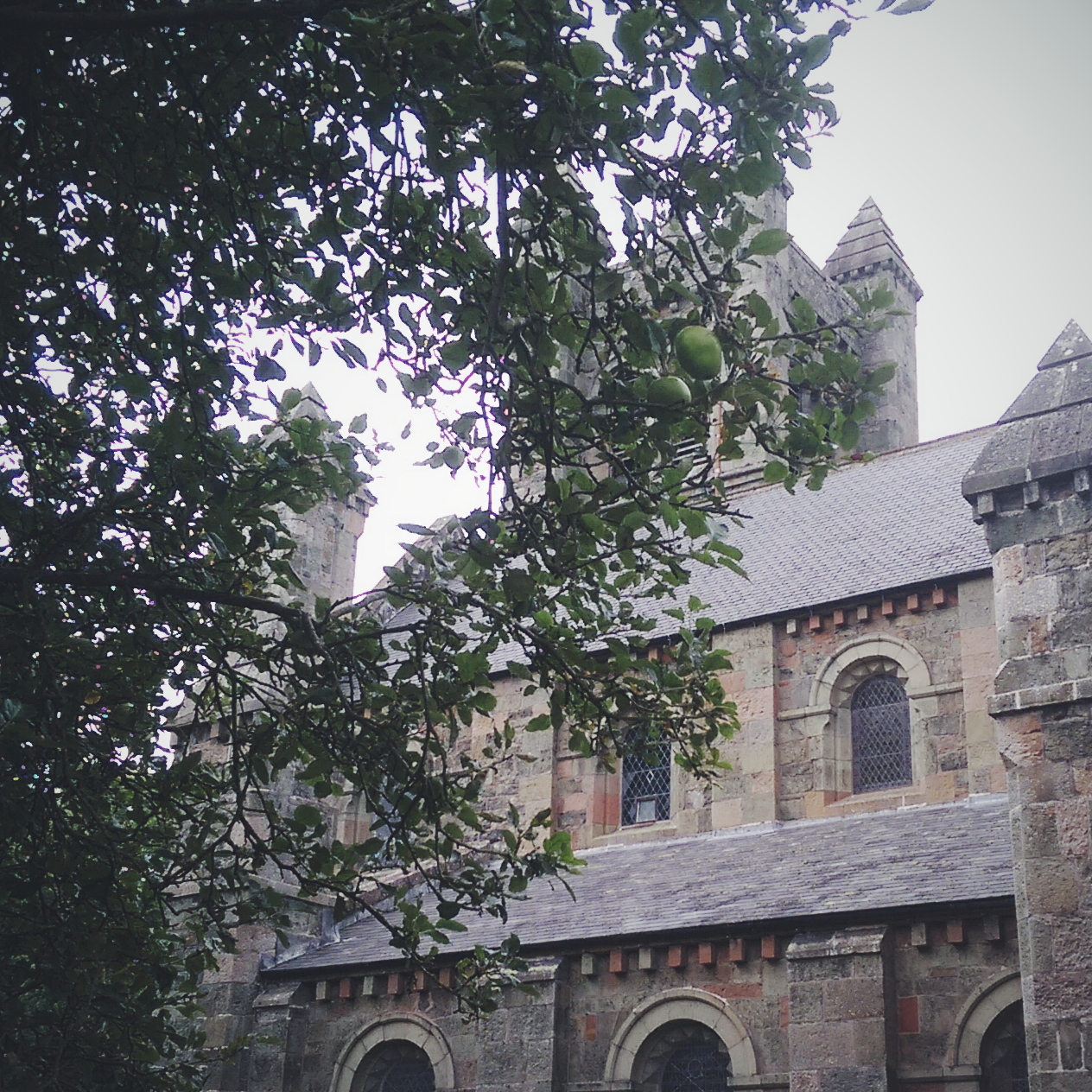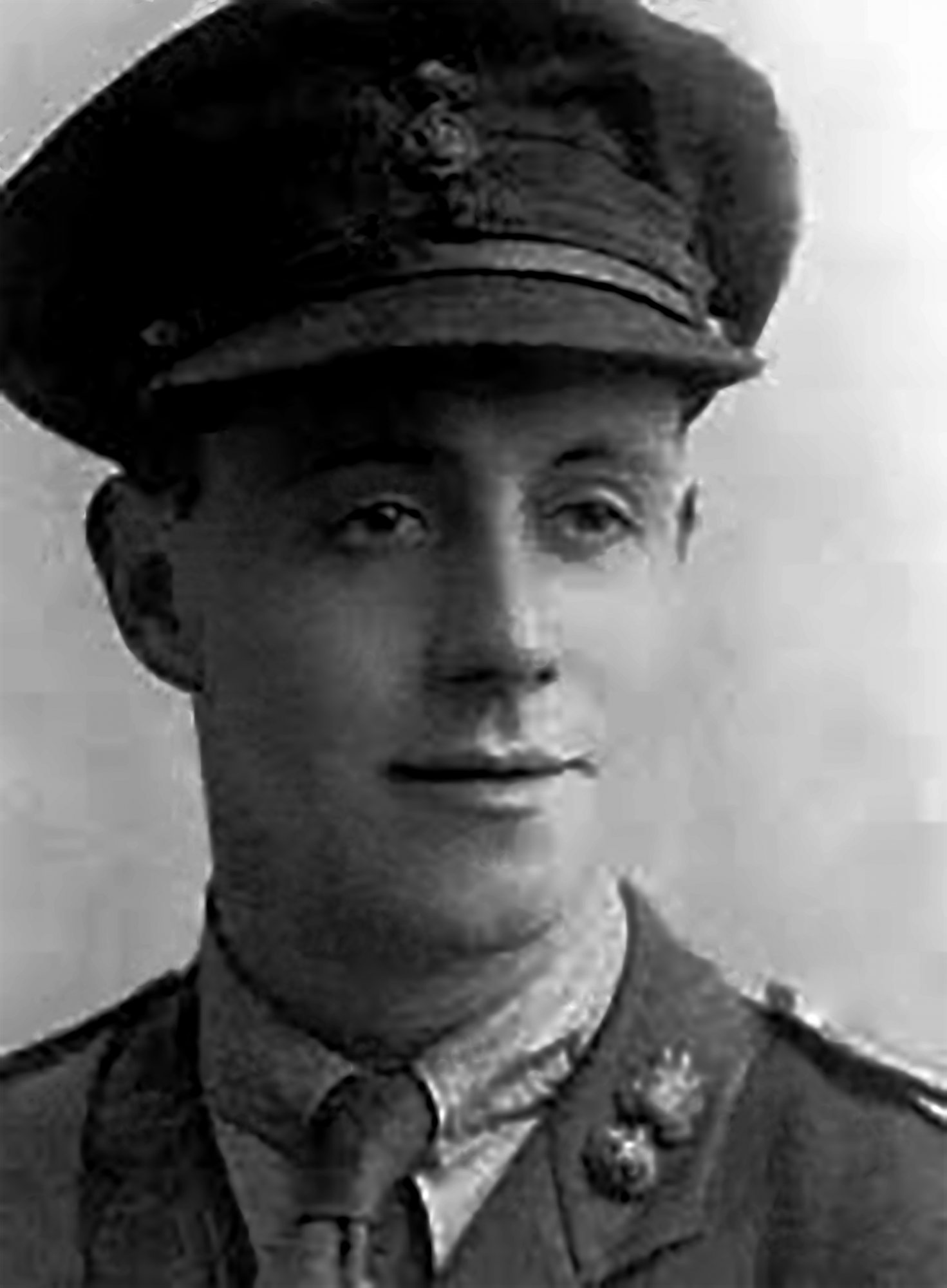
Remembering the Fallen of the Great War – Joseph Ithel Jehu Davies
Joseph Ithel Jehu Davies
Lieutenant :: Royal Welsh Fusiliers


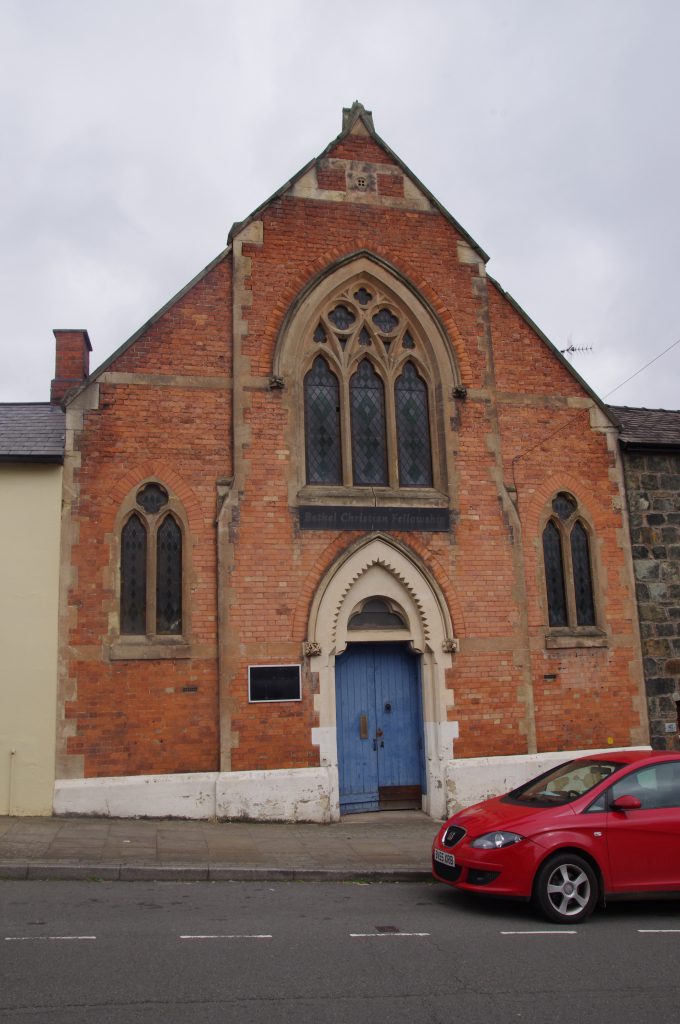
Whilst at university Ithel was a member of the Officers’ Training Corps therefore when war broke out he was able to gain a commission with the Royal Welsh Fusiliers in December 1914.
He travelled to France in October 1915 when the 1st Battalion Royal Welsh Fusiliers were part of the 7th Division of the British Expeditionary Force.
During his time there, Ithel was highly regarded by his men and by his commanding officers and greatly distinguished himself with his ‘courage and coolness’.
Whilst in the trenches, Ithel kept himself busy by forming his own army choir of over 30 voices. He also wrote poetry including the following poem which he dedicated to his mother.
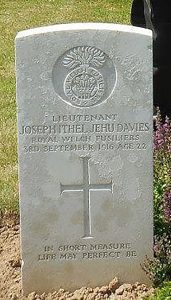
Ithel’s war medals were for many years on display in the Headmaster’s Office in Welshpool High School.
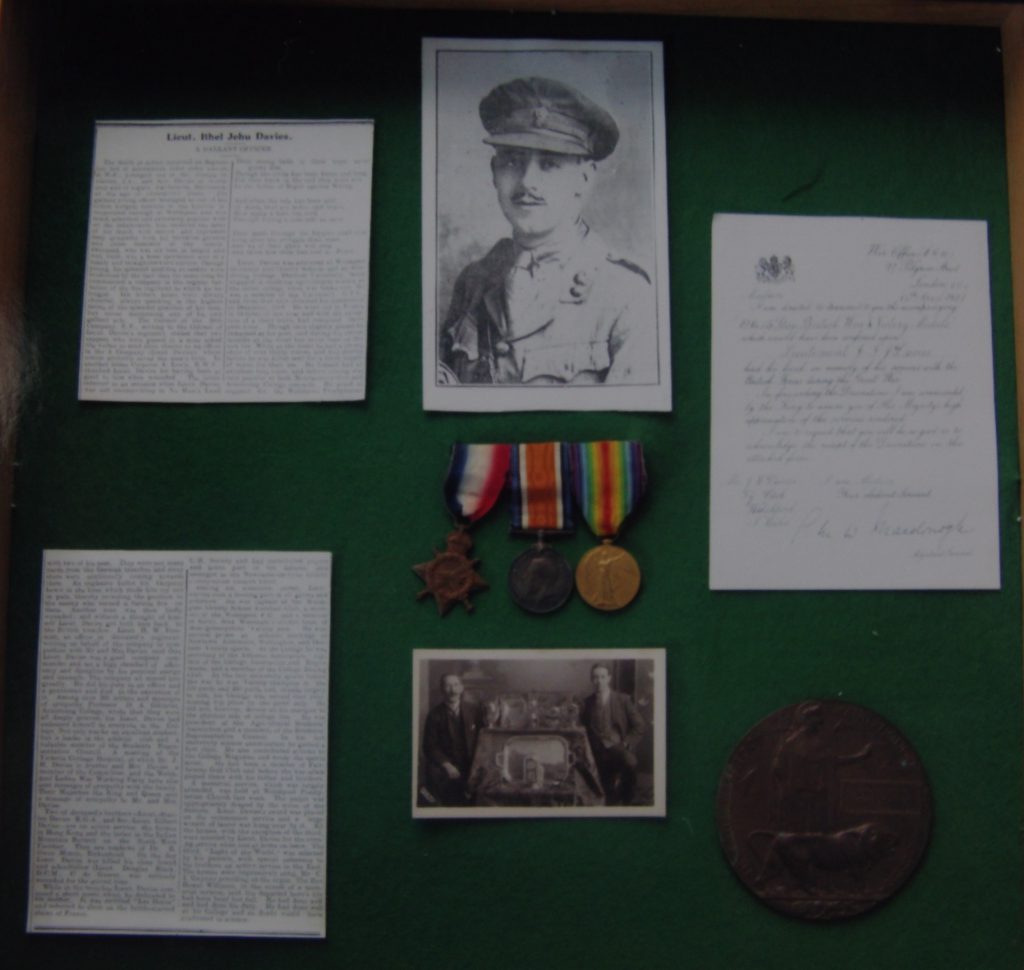
Ithel is remembered on Welshpool’s War Memorial in St. Mary’s churchyard. He is also remembered on a marble plaque originally on display in the Presbyterian Church, Mount Street, now housed in New Street United Church.

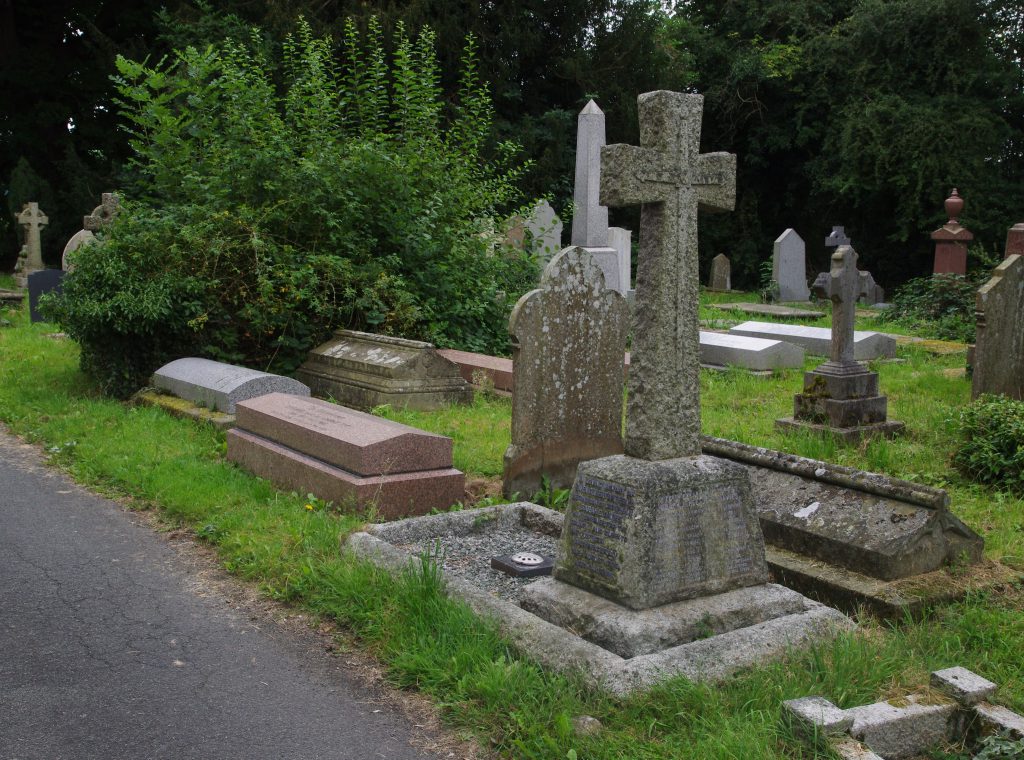
“There is a little bit of France, that is for ever ours”, Joseph and Sarah Davies
A more detailed account of Ithel’s story can be seen as part of the ‘Remembering the Fallen of the Great War at Christ Church’ exhibition.
Previously published stories of WW1 memorials here at Christ Church can be seen here
We featured the story of Joseph Ithel Jehu Davies on a film by Powys War Memorials Project.
